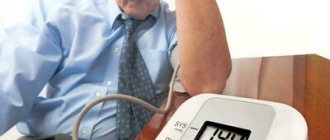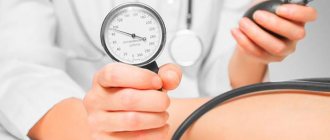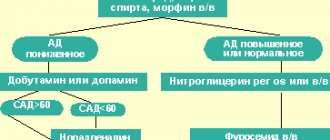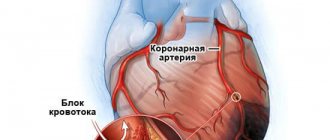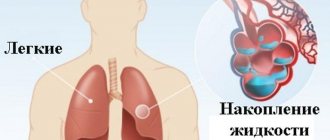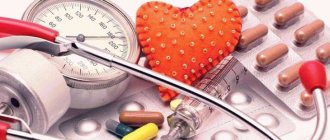Step seven: take gastrointestinal medications
Sometimes the pain during a heart attack has the character of heartburn. Patients take gastrointestinal medications and soda solution.
If the unpleasant sensation does not go away from taking heartburn medications, you should immediately seek medical help.
Unfortunately, advertising in the media tells in detail how to treat neuralgia, heartburn, and headaches. These drugs are on everyone's lips. And nothing is said about the symptoms of myocardial infarction. So a person tries everything he hears, but he doesn’t even suspect about a heart attack.
The most important action in case of a heart attack is to seek medical help in time and immediately transport the patient to the hospital.
How to avoid a heart attack: simple tips to prolong your life
How to avoid a heart attack? In order to get an answer to this question, you need to know what a heart attack is.
First of all, this disease involves problems with blood circulation that arise in the heart muscle. The cause is blockage or spasm of a blood vessel, which results in the death of myocardial tissue.
It's no secret that heart attack is one of the most common fatal diseases. Moreover, young people are increasingly becoming victims of this disease. People who have just turned 30 often die from heart attacks.
What most often provokes a heart attack? The first is emotional experiences and stress, the second is physical fatigue, which is not easy to avoid in the modern world. It happens that the patient does not even suspect that he is already susceptible to a pre-infarction state. In this case, the attack occurs suddenly. How to avoid a heart attack? Let's look at prevention methods and risk factors in more detail.
How to avoid a heart attack by leading a healthy lifestyle
You can avoid a heart attack if you strictly follow all the instructions described in medical manuals. First, doctors recommend undergoing special (drug) therapies aimed at reducing cholesterol levels and the number of blood clots. In addition, it is suggested to take beta blockers and adrenergic blockers for the heart. The main goal is to lower blood pressure.
But first, of course, it’s worth assessing how susceptible you are to this disease. And to do this, you need to understand exactly what reasons could lead your body to cardiac ischemia:
- Overweight. As fat mass in the body increases, the number of blood vessels also increases, which significantly affects the load on the heart. In addition, with obesity, a heart attack is preceded by the onset of diabetes and “jumping” blood pressure. In order to avoid a heart attack, it is necessary to assess excess weight. To do this, you need to calculate the body mass index: a person’s weight in kilograms divided by the height of the same person in meters squared. To understand: the optimal number is considered to be in the range from 20 to 25.
- Lack of normal nutrition . You can avoid a heart attack by eating more fish, fresh fruits and vegetables. It is recommended to reduce salt intake.
- Minimum physical activity . Without it, it is impossible to avoid obesity and high blood sugar. Moreover, sport in some cases helps in preventing a recurrent heart attack.
- Smoking and alcoholism . Bad habits are the causes of ischemia. So, in a smoker this occurs due to the fact that nicotine has a vasoconstrictor effect. Alcohol abuse complicates the course of coronary heart disease, often leading to myocardial infarction. People at risk are only allowed dry red wine, particularly with meals and in small quantities.
- Hypertension . If you already have high blood pressure, it is better to constantly monitor the situation. Hypertension is a significant risk factor for heart attack. You can avoid a terrible diagnosis if you bring your blood pressure back to normal by taking medications and homeopathic remedies.
- Stress . A constant negative state causes contractions of the heart muscle with a huge release of blood. In this regard, doctors recommend remaining calm in any, even the most stressful situations. It's better to avoid stress than to have a heart attack.
How to avoid a heart attack by following a balanced diet
Huge portions, gluttony, fatty, fried foods, baked goods and desserts - everything that can lead to a heart attack. These are all high carbohydrate foods. In order to avoid a heart attack, you need to switch to the right diet.
What is a balanced diet? First of all, it is taking in enough proteins, fats and carbohydrates. In such a diet, a large role is given to light varieties of meat (chicken, rabbit, white fish, etc.), fresh vegetables and fruits rich in vitamins and minerals. At the same time, it is forbidden to eat fatty, spicy dishes and foods. It's best to avoid them.
What's useful:
- Dried fruits;
- Spicy herbs (parsley, dill, cilantro);
- Leaf salads;
- Spinach;
- Cabbage;
- Brussels sprouts;
- Yellow and red vegetables and fruits (pumpkin, tomatoes, peppers, plums, peaches);
- Cereals;
- Green bean;
- Lentils;
- Beef liver;
- Eggs;
- Vegetable oils (unrefined, not heat-treated, 1-2 tbsp per day);
- Nuts (limited, about 1 handful per day);
- Fatty fish (salmon, mackerel, herring, haddock, no more than 2-3 times a week);
- Seafood (wild, not farmed);
- Onion;
- Garlic;
- Sour fruits and berries;
- Apples.
What's harmful:
- Alcohol (excessive consumption);
- Salt (recommended up to 5 grams per day);
- Animal fats;
- Coffee;
- Shrimp, especially large ones;
- Deep-fried dishes;
- Mayonnaise, margarine;
- Smoked meats.
Food that is steamed or baked in the oven is considered healthy. Those who want to avoid a heart attack should not eat fried foods at all.
How to avoid heart attacks for men
Most often, representatives of the stronger half of humanity are susceptible to coronary heart disease. If we take into account people aged 21-50 years, then in this category the number of sick men exceeds the number of women suffering from the disease by five times. If we consider the category of 51-60 years, then the ratio is 2 to 1. At the same time, as doctors assure, today the proportion of sick men aged about 40 is growing significantly.
Heredity is also an important factor. A history of heart disease in your family may indicate that you may have it. At the same time, concomitant diseases that also indicate a possible risk of heart attack in your family are diabetes mellitus and high blood pressure.
If all of the above is already included in the list of diseases of your relatives, then you should not aggravate the problem. Lead a healthy lifestyle, do not abuse alcohol, quit smoking, stop being nervous over trifles and move more.
How to avoid heart attacks in women
According to statistics, heart attacks in women occur approximately 10-15 years later than in men. Doctors can tell why exactly the attack occurred in almost all cases. Among the reasons: blood clots in the coronary artery, its spasm due to angina pectoris and/or an undesirable effect after surgical interventions.
Experts also note that there are other reasons, knowledge of which will help avoid a heart attack:
- Working in the cold . At low temperatures, a narrowing of blood vessels is observed, especially when we are talking about working without mittens or gloves. In the cold, there is increased stress on the body, which means the heart has to work harder. With narrowed vessels, this process leads to angina pectoris, and then to myocardial infarction.
- Staying in traffic jams for a long time. If you often have to stand in traffic jams or breathe air with an extremely high concentration of harmful substances for a long time, then you put yourself at risk of a heart attack. Choking exhaust fumes prevent your red blood cells from distributing oxygen throughout your body, without which your heart muscle has to work harder. The result of this is the “wear and tear” of the tissues and their necrosis, which can lead to a heart attack.
- Binge eating. When a person eats food, he actually forces blood to fill the enlarged vessels of the gastrointestinal tract. If you have problems (for example, atherosclerosis), then the normal course of the process will not occur. As a result, difficulties with blood flow can arise not only in the vessels of the gastrointestinal tract, but also in the functioning of the heart. It is for this reason that attacks of angina and heart attack often occur after a heavy meal. In this regard, doctors advise avoiding large portions, limiting the weight of the dish to 200 grams for women and 300 grams for men.
How to avoid a heart attack: prevention
What to do to avoid a heart attack? Do everything that helps eliminate existing coronary disease, reduce the risk of blood clots in blood vessels, and the development of metabolic problems in the body.
Prevention of heart attack depending on age
1st category: 20-29 years old . First, understand which doctor you can work with to overcome the disease. It is better if this person keeps his finger on the pulse and knows the latest options for preventing heart disease.
Then begin to undergo the mandatory procedure of medical examinations and studies. Watch your weight and blood pressure, don't overeat. At least once a week, go for a run in the park or simply devote time to sports. The weekly format will help you quickly get used to physical exercise, and thereby avoid a heart attack.
One last piece of advice: quit smoking and encourage those who expose you to secondhand smoke to do the same.
2nd category: 30-39 years old. Talk to your wife/husband and children. Maybe they are ready to support you in jogging or playing sports? And it’s even better if you manage to actively relax in the fresh air. By the way, having a dog in the house helps in this endeavor. So you will have to constantly walk your pet and run with it.
The second important point: find out whether any of your close relatives suffered from heart disease, and whether any of them died from a heart attack. Tell your doctor what you find out.
Take time not only for work, but also for your personal life. Reduce your load if you feel overly tired, avoid stressful situations.
Yoga, Eastern practices and communication with God (of course, if you are a believer) help calm your nerves.
Doctors advise the weaker half of humanity to monitor the condition of the thyroid gland.
3rd category: 40-49 years old. During this period, a person experiences a problem such as deterioration of metabolism. Try to avoid weight gain by exercising and monitoring the level of glycated hemoglobin in your blood. It is enough to undergo the procedure once every three years. Consume fewer carbohydrates, strive to reduce glycated hemoglobin to 5.5% or less. If the indicator is higher, then the likelihood of a heart attack increases by 28%. If hemoglobin is more than 6.5%, then consider this a sign of diabetes. Advice for men: If you snore in your sleep, get tested for sleep apnea.
4th category: 50-59 years old. Write down all the symptoms of a heart attack and constantly re-read this list. If you are a man, then you can easily identify an attack. In the strong half of humanity, the symptoms of a heart attack are usually pronounced. In women, on the contrary, identifying a pre-infarction condition is not so easy. They are advised to consult a doctor with any suspicions, monitor blood pressure, glycated hemoglobin, cholesterol and other indicators. If your doctor deems it necessary, take the prescribed medications.
5th category: 60 years and older. Just as you spent time at work, spend time on your health. Watch your body weight, eat more often, but little by little. Try to play sports, monitor the condition of your blood vessels. Avoid the occurrence and/or development of atherosclerosis, varicose veins and other dangerous diseases.
Medications
Is it possible to prevent a heart attack with medications? Doctors are sure yes. Most often, such prevention is aimed at solving problems that precede the disease. These include high blood pressure, atherosclerosis, coronary heart disease, and thrombosis.
Doctors often prescribe acetylsalicylic acid (aspirin). The drug is taken once a day, 100 mg tablet after lunch. Aspirin, according to experts, thins blood clots, thereby preventing the formation of blood clots in the vessels. Those who suffer from a tendency to bleeding, ulcers and hemophilia should not take the drug. Pharmacies today sell many derivatives of aspirin, which are presented as preventive drugs that help avoid a heart attack.
A special role in the prevention of heart attack is played by the fight against high blood pressure and hypertension. In this situation, medications are prescribed that stimulate vasodilation. In addition, with the help of “chemistry” it is possible to avoid, or rather eliminate, such a risk factor as cholesterol in the blood. However, doctors remind: statins are prescribed by professionals, and their treatment should be constant and continuous. Only in this case a positive result is possible.
How to avoid another heart attack
What to do to avoid a recurrence of a heart attack? Even if the treatment of dead myocardial tissue goes well and the patient does not feel a worsening of the condition, doctors are confident that the victim, in any case, will be susceptible to new attacks. Most often, it is this fact that is most difficult for a heart attack survivor to come to terms with.
To avoid a second heart attack, the patient is prescribed aspirin and Ticlopidine. Taking them allows you to reduce the number of blood clots formed in the vessels. To avoid high blood pressure, beta blockers are prescribed.
But most often, patients stop taking the pills of their own free will, which provokes the onset of new heart attacks and death. At the same time, ignoring the advice of doctors, they continue to lead a passive lifestyle. Although normalizing heart function often requires only 10 minutes of daily walking.
You can avoid a second heart attack if you optimize your diet. The diet must be prescribed by your cardiologist. Most likely, he will advise you to eat more green fruits and vegetables, reduce your intake of fatty, spicy, and anything else that involves large amounts of cholesterol. It is also not recommended to drink coffee or use a lot of spices and salt in cooking.
An important role in the rehabilitation of the patient is played by his mental and emotional state. After a heart attack, it is recommended to avoid stressful and anxious situations and use sedatives. It is especially important that close and dear people be near the patient.
Of course, to avoid a recurrence of a heart attack, you need to say goodbye to bad habits forever. Alcohol and cigarettes should be a thing of the past.
In fact, as experts say, a heart attack can be avoided even if it has already happened. The main thing is to follow the recommendations that the doctor gave you.
ARVI in diabetes mellitus
During the infectious process, a cascade of biochemical reactions is triggered, promoting, among other things, the active synthesis of corticosteroids that have a counter-insular effect: the hormone blocks the work of insulin at the cellular level and inhibits its formation in the pancreas. The total effect of corticosteroids and other biologically active substances significantly exceeds the effect of insulin in the patient’s usual dosage. In the absence of proper control of glycemic levels, which in acute respiratory viral infections is preferably carried out every 2-3 hours, the risk of ketoacidosis or hyperosmolar coma increases significantly. There are often cases when the deterioration of the patient’s condition is mistaken for signs of viral intoxication and an immediate threat to life is diagnosed late.
The problem of treatment of ARVI and influenza in comorbid patients
ARVI and influenza complicate the course of cardiovascular pathology and diabetes mellitus and sharply increase the likelihood of decompensation of the disease. That is why the search for drugs to protect such patients, to treat ARVI as quickly and safely as possible, is a very pressing issue.
Most existing antiviral drugs only work against the influenza virus, which makes them difficult to prescribe. The drugs themselves are quite aggressive and have a long list of contraindications and side effects. Thus, their use should be avoided in cases of kidney and liver disorders, which often accompany coronary artery disease and diabetes.
It is also necessary to take into account the problem of drug interactions: antiviral and symptomatic drugs often do not combine well with continuous treatment of underlying diseases.
